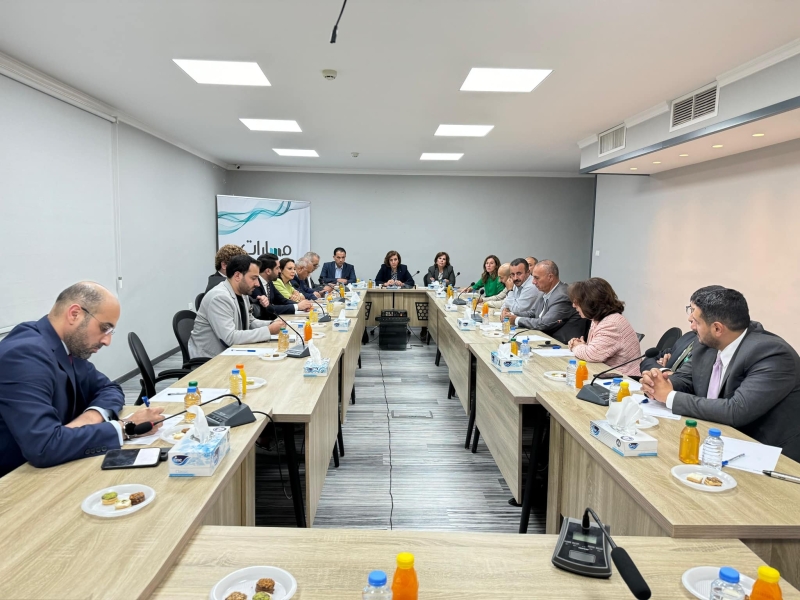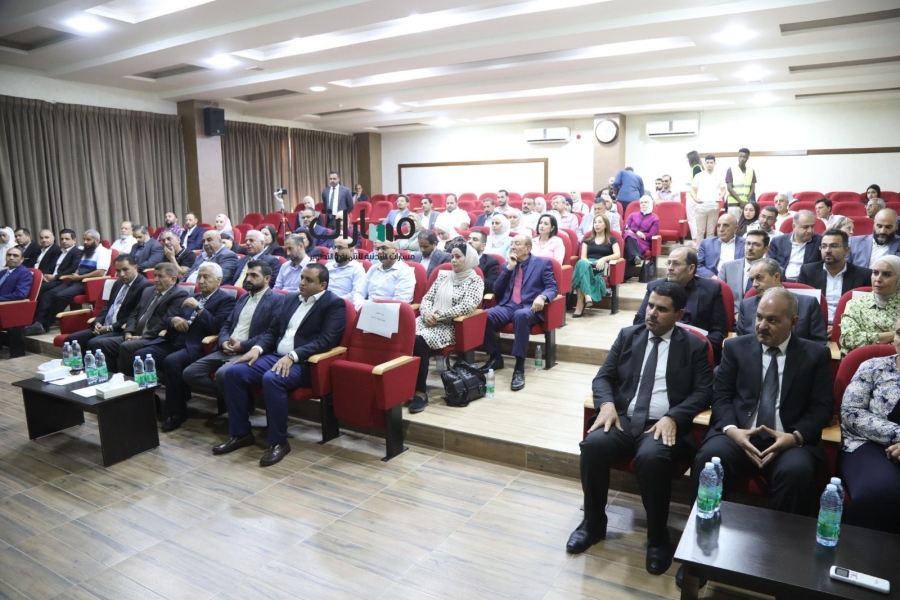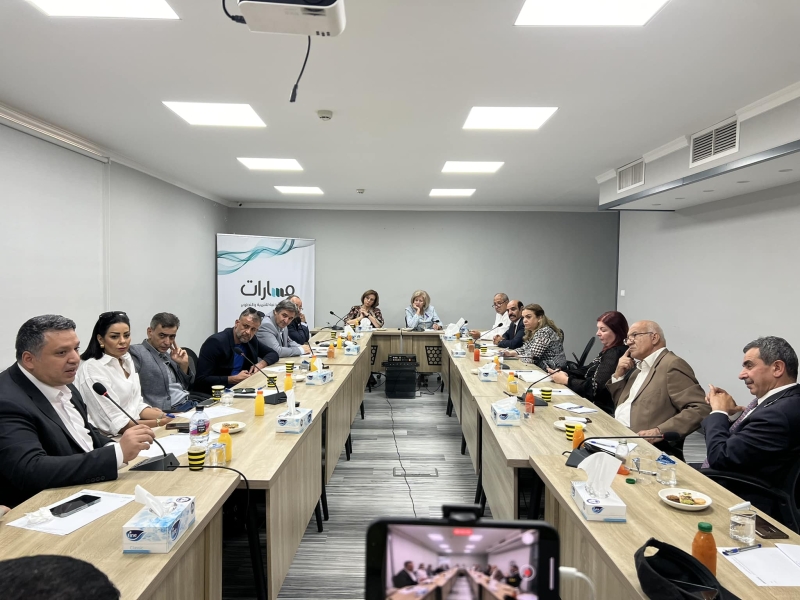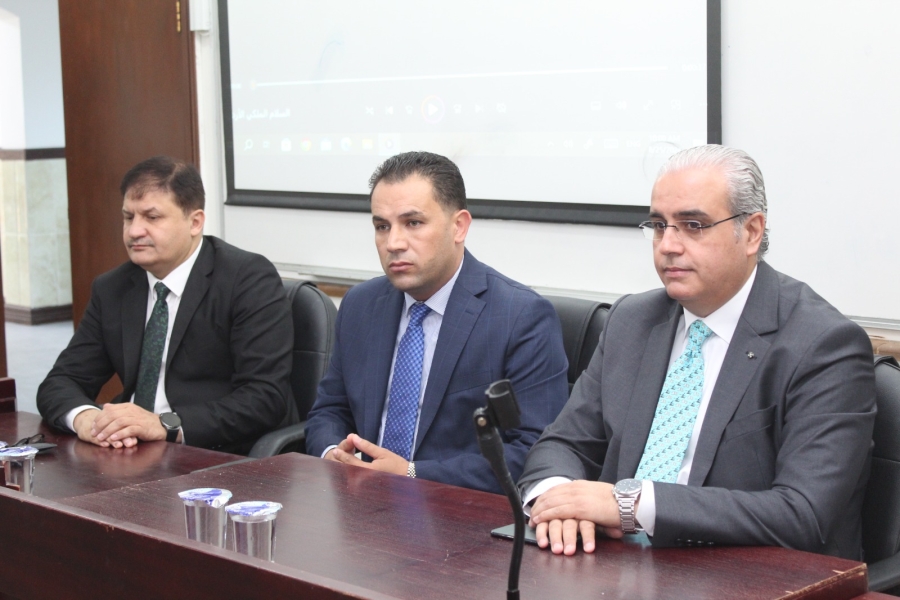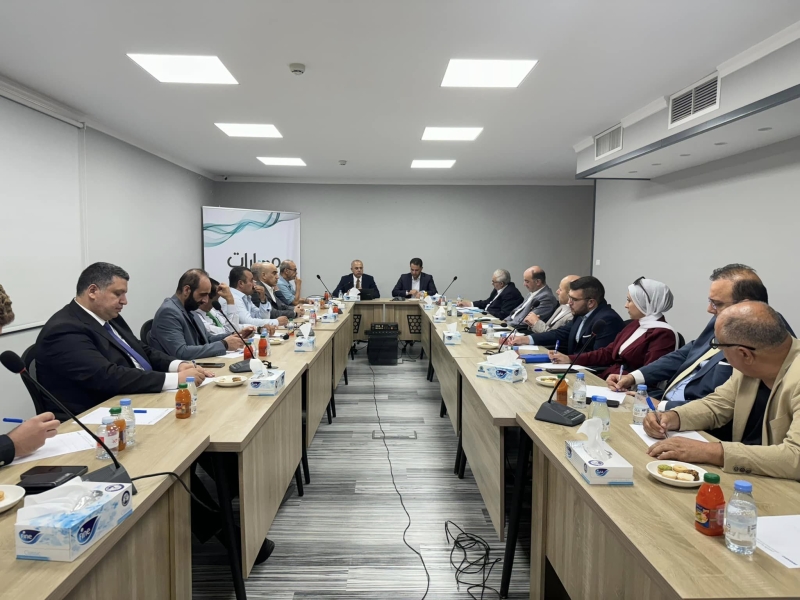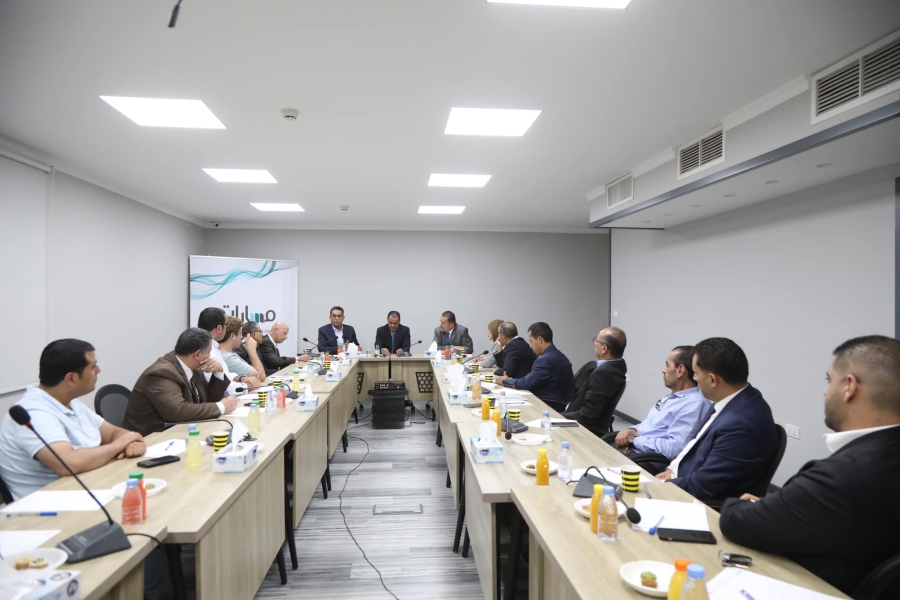“مسارات الأردنية” تناقش مخرجات اللجنة الملكية المتعلقة بحصانة النواب والوزراء
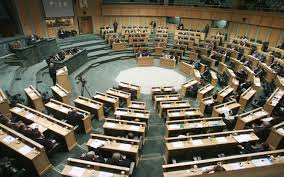
عقدت مؤسسة مسارات الأردنية للتنمية والتطوير، اليوم الإثنين، في مقرها بالعاصمة عمان، جلسةً حواريةً مفتوحة مع مجموعةٍ من الخبراء في الشأن القانوني والدستوري، تحت عنوان “التعديلات الدستورية… حصانة النائب والوزير، تضييق أم إصلاح؟”
وجاءت الجلسة لمناقشة التعديلات الدستورية التي أوصت بها اللجنة الملكية لتحديث المنظومة السياسية، وتحديدًا فيما يتعلق بالمواد (٥٥، ٥٦، ٥٧، ٨٦، ٨٧) من الدستور، والغايات التشريعية التي تقف خلفها، والعلاقة بين الحصانة ومشروع الإصلاح في الأردن
وعبّر الوزير الأسبق، الدكتور نوفان العجارمة، عن رفضه لهذه التعديلات؛ لأنها لا تمت للإصلاح بصلة، مشيرًا إلى أنه لم يعد هناك تفريق بين الخطأ الإداري والجريمة التي يرتكبها الوزير خارج إطار عمله وشؤون وزارته، وهو ما أصاب الدولة بـ”شلل” في السنوات الأخيرة
وذكر العجارمة، أن مبدأ سيادة القانون لا يمكن تحقيقه إلا بوجود 3 سلطات مستقلة عن بعضها عضويًّا ووظيفيًّا، مع ضرورة التوازن الحقيقي فيما بينها، مستغربًا لماذا قامت اللجنة بالتعرض لحصانة النائب والوزير رغم أن تلك النصوص المستقرة دستوريًّا منذ العام ١٩٥٢ قد ساهمت في إنتاج إدارة أردنية ناجحة ومبدعة
وأشار إلى أن التعرض لحصانة النائب والوزير بهذه الطريقة لم يكن وجيهًا أو حكيمًا
وشملت أبرز التعديلات المقترحة التي خرجت بها لجنة التعديلات الدستورية المنبثقة عن اللجنة الملكية لتحديث المنظومة السياسية، “حصر إحالة الوزراء من قبل مجلس النواب بالوزراء العاملين؛ وذلك للحد من تحصين الوزراء السابقين ولزوم محاكمتهم أمام القضاء شأنهم في ذلك شأن أي شخص”
كما نصّت التعديلات على “قصر الحصانة البرلمانية بالتوقيف دون المحاكمة؛ وذلك تكريسًا لمبدأ سيادة حكم القانون وعدم تعطيل إجراءات التقاضي، مع الإبقاء على الحصانة اللازمة والكافية لأعضاء مجلس الأمة للاضطلاع بدورهم التشريعي والرقابي”
وفي السياق ذاته، قال النائب السابق، الدكتور مصطفى ياغي، إن تشويه النصوص في التعديلات الدستورية هو ما حصل مؤخرًا، وكان يُفترض لكل تشريع “أن يوسع في مخيلتنا كيف سيصير الأمر مستقبلًا”، لافتًا إلى تحفّظه على هذه التعديلات وعدم إتاحة الوقت الكافي لمناقشتها بين أعضاء اللجنة الملكية العامة
وأوضح ياغي، أن الدستور الأردني من الدساتير الجامدة وليست المرنة؛ لذا فهو يتطلب مواكبة العصر والحداثة دون المساس بجوهره، داعيًا إلى تحديد فلسفة واضحة لمحاسبة الوزير على الأخطاء التي يرتكبها، لا سيما وأن “السلطة المطلقة مفسدة مطلقة”، إلا أنه أعرب عن تأييده للتعديل المتعلق بحصانة النائب، بحيث تكون الحصانة في مجال التوقيف فقط؛ ليتمكّن النائب من أداء وظيفته
من جانبه، لفت النائب، الدكتور غازي الذنيبات إلى أن رافضي الحصانة يرونها إخلالًا للمبدأ الدستوري الذي ينص على أن المواطنين أمام القانون سواء، وأنها عبارة عن تعطيل للإجراءات القانونية
وأوضح الذنيبات، أن الحصانة جاءت ليُعبّر النائب عن إرادة الأمة، وبالتالي فإن الحصانة، وخصوصًا الموضوعية، تتعلّق بما يُدليه النائب من أقوال وأفعال تحت القبة، والنظام الداخلي للمجلس وضع ضوابط للحصانة الموضوعية، إلا أن هامش حديث النواب يحكمه عدة أمور؛ منها السياسة والحريات العامة وحقوق الإنسان في البلاد
ووصف تعديلات اللجنة بأنها مجرد قشور خارجية ومداعبة للنصوص، كما أن معالجة الحصانة كانت باهتة جدًّا
أما عضو اللجنة الملكية لتحديث المنظومة السياسية، المهندس عبد الهادي الفلاحات، فقال إن التعديلات الدستورية جاءت لتحسين واقع قائم بعد فحصه من خلال الممارسات التي جرت على أرض الواقع
وأوضح الفلاحات، أن تعديلات حصانة الوزير جاءت لتفعيل سيادة القانون؛ لأن الوزير السابق أصبح مواطنًا، أما التعديلات المتعلقة بالنواب، فهي لا تمنعهم من القيام بدورهم التشريعي
وشارك في الجلسة رئيسة مجلس أمناء مؤسسة “مسارات الأردنية للتنمية والتطوير”، وزيرة التنمية الاجتماعية السابقة، ريم أبو حسان، ونائب رئيس مجلس الأمناء الذي أدار الندوة، النائب والمحلل السياسي عمر العياصرة
وضمّت قائمة المتحدثين الرئيسيين في الندوة: الوزير الأسبق، الدكتور نوفان العجارمة، والنائب السابق، الدكتور مصطفى ياغي، والنائب، الدكتور غازي الذنيبات، وعضو اللجنة الملكية لتحديث المنظومة السياسية، المهندس عبد الهادي الفلاحات، بالإضافة إلى عدد من الشابات والشباب المهتمين بالشأن السياسي
وستُصدر “مسارات الأردنية للتنمية والتطوير”، ورقة موقف حول الجلسة الحوارية في غضون الأيام المقبلة

